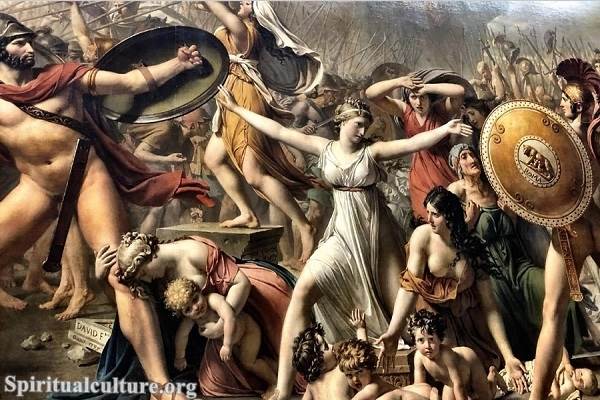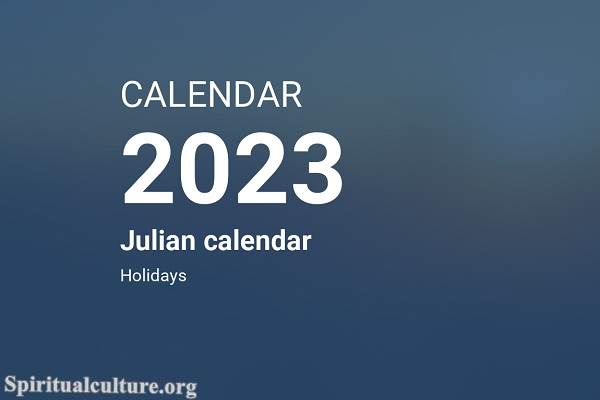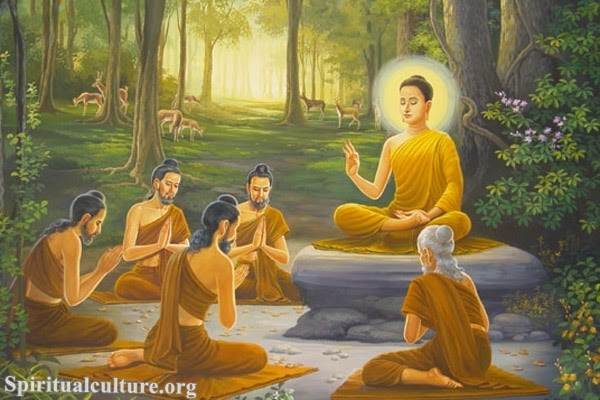Observed on the third Monday of January, “Martin Luther King Day” encourages reflection on King’s values of equality, justice, and nonviolence. This day also recognizes his contributions and the ongoing fight for civil rights.
In this article, Spiritual Culture explores the significance of Martin Luther King Day, its history, the controversies surrounding its establishment, and how it is celebrated today.
Federal Holiday Calendar
As a federal holiday, Martin Luther King Day is recognized across the United States, with most federal institutions and many private businesses closing for the day. It is part of the U.S. federal holiday calendar, which includes other significant dates such as Independence Day, Memorial Day, and Labor Day. These holidays provide the nation with moments to remember its history, celebrate its values, and reflect on its ongoing journey toward a more perfect union.
Annual Observance Date
Martin Luther King Day is observed on the third Monday in January each year. The holiday was established to coincide with Dr. King’s birthday, which is January 15th, although the holiday does not always fall precisely on this date. The selection of a Monday for the holiday aligns with the Uniform Monday Holiday Act, designed to provide American workers with more extended weekends and reduce employee absenteeism.
The choice to honor Dr. King near his birthday also underscores his personal connection to the civil rights movement and the era he helped define. By observing the holiday in mid-January, Americans are reminded of Dr. King’s legacy at the start of each new year, symbolically setting a tone of reflection and community service for the months ahead.
Dates for Upcoming Years
Here are the upcoming dates for Martin Luther King Day:
- 2025: January 20
- 2026: January 19
- 2027: January 18
- 2028: January 17
- 2029: January 15
By ensuring that Martin Luther King Day falls on the third Monday of January, the holiday provides a consistent day for Americans to engage in remembrance and service. This scheduling also fosters nationwide participation in the many events and activities that honor Dr. King’s legacy each year.
Significance of Martin Luther King Day
Martin Luther King Day holds deep significance for many Americans. It is a day not only to honor the memory of a great leader but also to reflect on the values and principles he espoused. The holiday serves as a reminder of the ongoing struggle for racial equality and justice, encouraging individuals to consider how they can contribute to this cause in their daily lives.
Commemoration of Civil Rights
The holiday is a commemoration of the civil rights movement, which was a transformative period in American history. During this time, African Americans and their allies fought tirelessly to dismantle systemic racism and achieve equal rights under the law. Dr. King was a central figure in this struggle, advocating for nonviolent protest and civil disobedience as means to effect social change. Martin Luther King Day is an opportunity to remember the sacrifices made by Dr. King and countless others who marched, protested, and organized to demand equality and justice.
By commemorating the civil rights movement, the holiday also serves as an educational opportunity. Schools, community organizations, and media outlets often use this time to teach about the history of racial discrimination in the United States, the achievements of the civil rights movement, and the ongoing challenges that continue to face marginalized communities.
Legacy of Martin Luther King Jr.
Dr. Martin Luther King Jr.’s legacy is characterized by his commitment to nonviolence, his eloquent advocacy for civil rights, and his unyielding belief in the power of love and justice to overcome hatred and oppression. His leadership in the Montgomery Bus Boycott, his organization of the Southern Christian Leadership Conference (SCLC), and his participation in numerous other campaigns were crucial in challenging and ultimately changing the discriminatory laws and practices of the time.
Dr. King’s “I Have a Dream” speech, delivered during the 1963 March on Washington for Jobs and Freedom, remains one of the most iconic moments in American history. In it, Dr. King articulated a vision of a society where people are judged not by the color of their skin but by the content of their character. Martin Luther King Day serves as a reminder of this vision and calls on Americans to continue working toward its realization.
Historical Context
The establishment of Martin Luther King Day as a federal holiday was a milestone in American history, marking the first time a private citizen who had never held public office was honored with a federal holiday. The journey to this recognition was long and fraught with controversy, reflecting the complexities of Dr. King’s legacy and the social and political landscape of the United States.
Establishment of the Holiday
The idea of a national holiday to honor Dr. King was first proposed shortly after his assassination in 1968. Congressman John Conyers of Michigan introduced a bill to establish the holiday just four days after Dr. King’s death. However, the bill initially failed to gain significant support in Congress. Over the next decade, advocates for the holiday, including Dr. King’s widow, Coretta Scott King, organized campaigns, rallies, and petitions to garner support.
The campaign for the holiday gained momentum in the late 1970s and early 1980s. Stevie Wonder’s 1980 song “Happy Birthday” became an anthem for the movement, and a petition with over six million signatures in support of the holiday was presented to Congress. Despite this growing support, there was still considerable opposition from some quarters. Critics argued against the cost of creating a new federal holiday and questioned whether Dr. King’s legacy merited such recognition.
Key Events Leading to Federal Recognition
Several key events helped pave the way for the federal recognition of Martin Luther King Day. In 1983, after years of advocacy and debate, a bill to establish the holiday was passed by the U.S. House of Representatives. The bill faced opposition in the Senate, particularly from Senator Jesse Helms of North Carolina, who led a filibuster against it. Helms questioned Dr. King’s political beliefs and his opposition to the Vietnam War, attempting to portray him as an unworthy figure for national honor.
Despite these efforts, the Senate voted to end the filibuster and passed the bill with a 78-22 vote. On November 2, 1983, President Ronald Reagan signed the bill into law, establishing Martin Luther King Day as a federal holiday to be observed on the third Monday of January each year. The first official observance took place on January 20, 1986, marking a significant achievement for the civil rights movement and a moment of national reflection on the legacy of Dr. King.
Celebration Practices
Martin Luther King Day is celebrated in diverse ways across the United States, reflecting the varied traditions and cultures of the American people. The holiday is marked by a mix of solemn remembrance, educational activities, and community service projects, each aimed at honoring Dr. King’s life and legacy.
National Events and Observances
On a national level, Martin Luther King Day is often observed with ceremonies and educational programs dedicated to Dr. King’s life and work. Many communities host parades, concerts, and public readings of Dr. King’s speeches, particularly the iconic “I Have a Dream” speech. The day also features numerous discussions and panels focused on civil rights, social justice, and how to continue Dr. King’s work in modern times.
Community Volunteer Activities
A key aspect of Martin Luther King Day is its emphasis on service. Dubbed a “day on, not a day off,” many Americans choose to honor Dr. King’s legacy by participating in community service activities. These range from volunteering at local shelters and food banks to organizing community clean-ups and educational programs. The day serves as a reminder of Dr. King’s commitment to service and his belief in the power of individuals to enact change through collective action.
Martin Luther King Day is often called a “day of service,” encouraging individuals to volunteer and give back to their communities in honor of Dr. King’s dedication to social justice and community empowerment. Many organizations and institutions, including schools, churches, and nonprofits, organize volunteer opportunities that range from community clean-up efforts to educational workshops and youth mentorship programs.
National Events and Observances
Across the country, various events are held to celebrate Martin Luther King Day and educate the public about Dr. King’s life and work. Major cities often host parades and rallies, featuring speeches from civil rights leaders, musical performances, and floats celebrating African American culture and history. These events provide a space for communities to come together, reflect on Dr. King’s message, and renew their commitment to his vision of a just and equitable society.
In addition to parades and rallies, many universities, museums, and cultural institutions hold special exhibits, lectures, and workshops that explore the history of the civil rights movement and Dr. King’s role within it. These educational programs offer opportunities for people of all ages to learn more about the struggle for racial equality and the impact of Dr. King’s leadership.
Community Volunteer Activities
One of the unique aspects of Martin Luther King Day is its emphasis on service. The holiday has become known as a “day of service,” encouraging individuals to volunteer their time and skills to help their communities. This tradition is inspired by Dr. King’s belief in the power of service and his commitment to uplifting those in need.
On Martin Luther King Day, millions of Americans participate in service projects across the country. These projects vary widely and can include activities such as cleaning up local parks, organizing food drives, mentoring young people, or helping to build homes for those in need. The day is seen as an opportunity for individuals to give back to their communities and make a positive impact in honor of Dr. King’s legacy.
Controversies and Challenges
While Martin Luther King Day is widely celebrated today, its establishment was not without controversy. The debate over whether to honor Dr. King with a federal holiday reflected broader societal divisions over issues of race, equality, and the meaning of Dr. King’s legacy.
Opposition to the Holiday
Some opponents of the holiday argued that Dr. King was not deserving of such a high honor, citing his opposition to the Vietnam War and his criticism of American economic policies. Others expressed concerns about the cost of adding another federal holiday to the calendar, arguing that it would be an unnecessary expense for the government and businesses.
In some states, there was significant resistance to recognizing Martin Luther King Day. For years, Arizona and New Hampshire refused to observe the holiday, leading to boycotts and protests. In 1990, Arizona voters rejected a ballot measure to establish Martin Luther King Day, resulting in the loss of a Super Bowl that had been scheduled to take place in the state. It was not until 1992 that Arizona officially recognized the holiday, following a second ballot measure that passed. New Hampshire was the last state to adopt Martin Luther King Day as a paid state holiday, doing so in 1999.
Ongoing Debates
Even today, there are debates about how best to honor Dr. King’s legacy and what the holiday should represent. Some argue that Martin Luther King Day has become too commercialized or that its emphasis on service has overshadowed its political significance. Others believe that the holiday should serve as a call to action, encouraging Americans to continue fighting for the values of justice, equality, and nonviolence that Dr. King championed.
Despite these debates, Martin Luther King Day remains a vital part of the American holiday calendar, providing an opportunity for reflection, education, and action. It serves as a reminder of the progress that has been made in the fight for civil rights and the work that still needs to be done to achieve Dr. King’s dream of a just and equal society.
Conclusion
Martin Luther King Day is more than just a day off from work or school; it is a time for Americans to come together in remembrance, reflection, and service. The holiday serves as a powerful reminder of Dr. King’s contributions to the civil rights movement and his enduring legacy of nonviolent resistance and social justice.
By observing Martin Luther King Day, Americans have the opportunity to honor Dr. King’s memory, reflect on the values he stood for, and commit themselves to the ongoing struggle for equality and justice. As we continue to celebrate this important holiday each year, let us remember the words of Dr. King: “Life’s most persistent and urgent question is, ‘What are you doing for others?'” This question challenges us all to live up to the ideals of service, justice, and equality that Dr. King dedicated his life to achieving.



